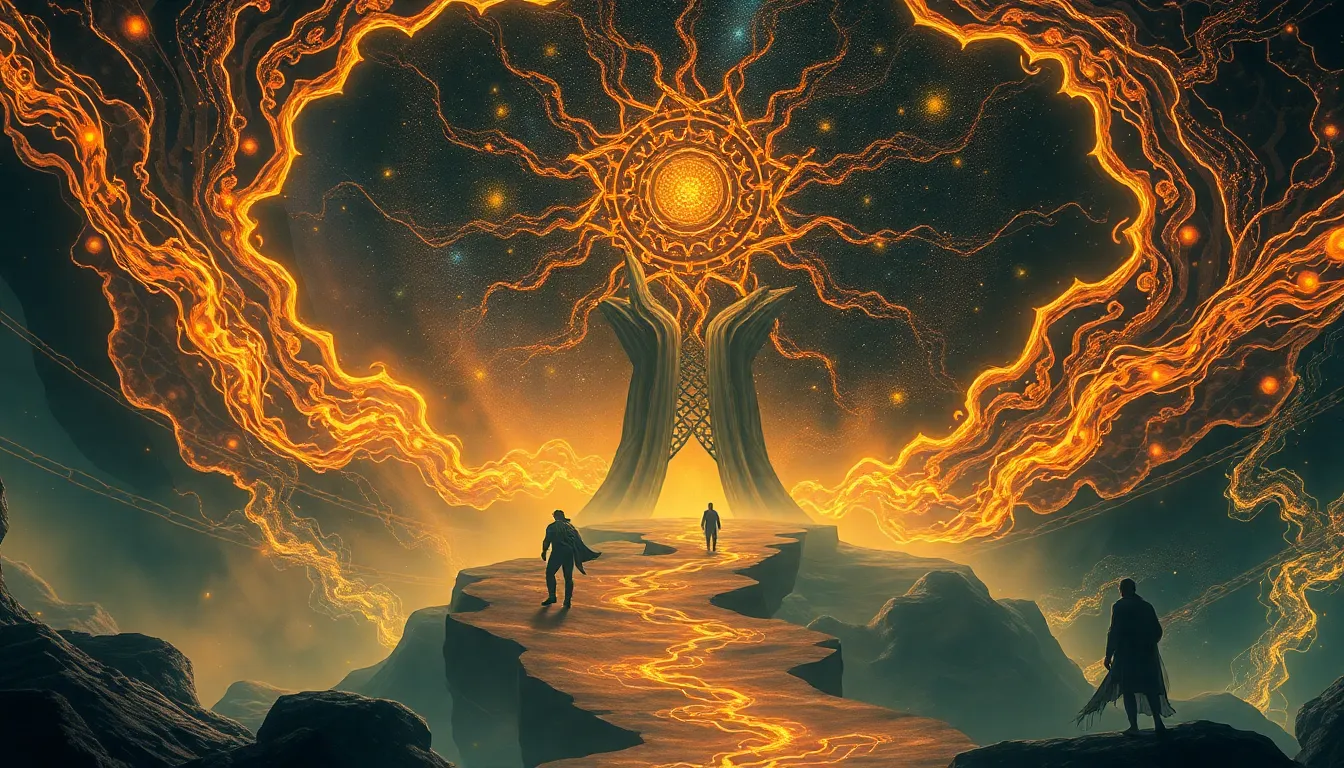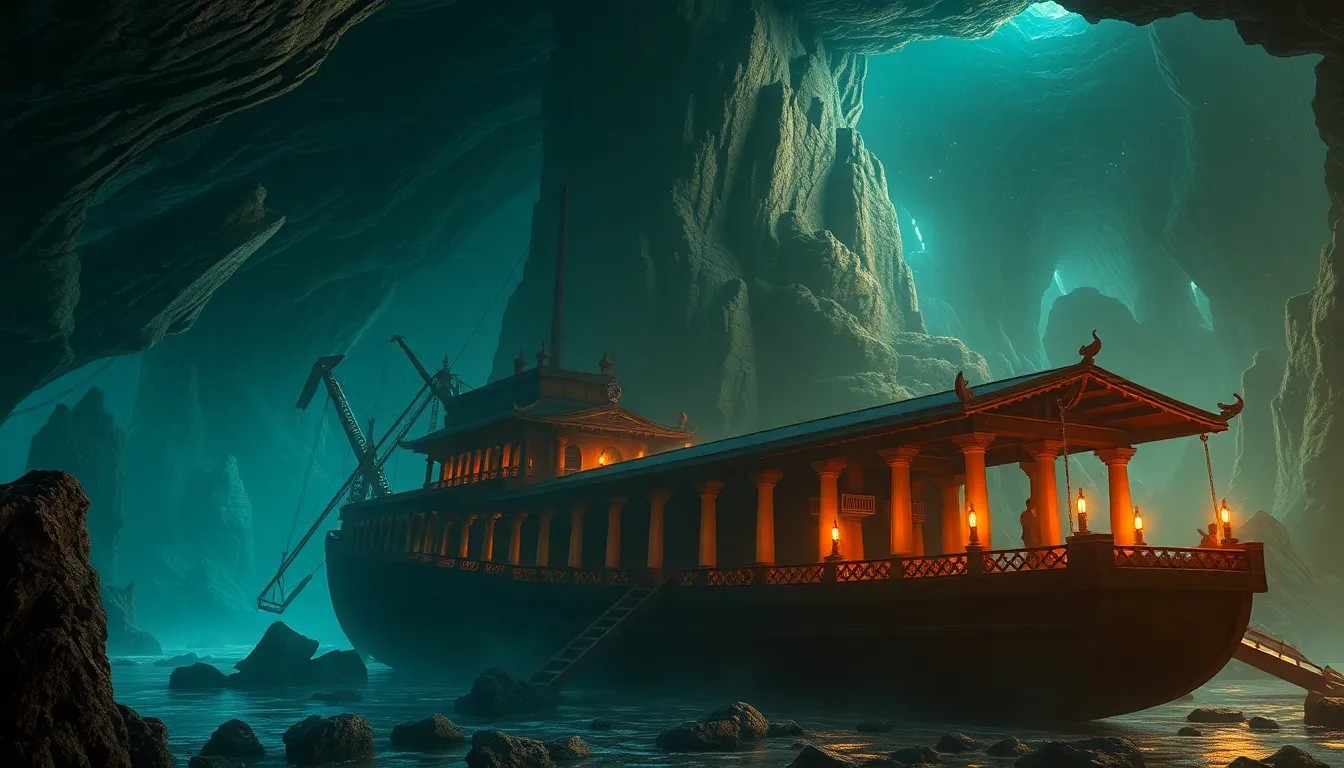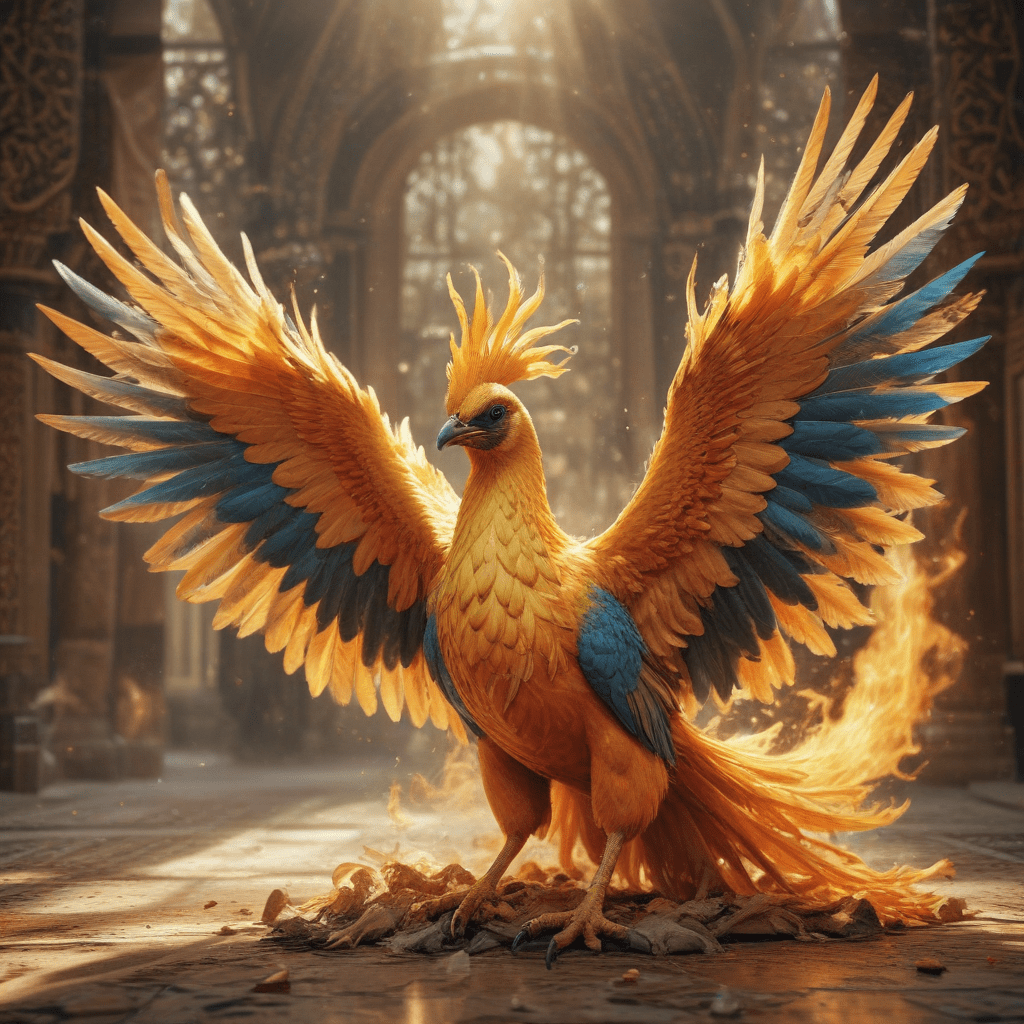The Origins of Everything: Creation Myths That Fascinate
I. Introduction
Creation myths, the stories that explain the origins of the world and humanity, are a fundamental aspect of human culture. They provide insight into the beliefs, values, and identities of various societies. These narratives not only reflect the historical context in which they were created but also resonate with the existential questions that have puzzled humanity for centuries. This article aims to explore the diverse creation myths across cultures, shedding light on their significance and the roles they play in our understanding of existence.
II. The Importance of Creation Myths
Creation myths serve several vital functions in society:
- Cultural identity and cohesion: They help to establish a shared identity among members of a community, fostering a sense of belonging.
- Moral and ethical frameworks: Many myths provide moral lessons and ethical guidelines that govern behavior and social interactions.
- Psychological and existential exploration: These stories often address fundamental questions about life, purpose, and the nature of existence, helping individuals navigate their own beliefs and experiences.
III. Creation Myths in Ancient Civilizations
Ancient civilizations produced some of the most enduring and fascinating creation myths:
A. Mesopotamian myths: Enuma Elish and the creation of the world
The Enuma Elish, a Babylonian creation epic, describes the emergence of the world from primordial chaos. In this narrative, the god Marduk defeats the chaos monster Tiamat, using her body to create the heavens and the earth. This myth emphasizes the themes of order arising from chaos, a common motif in many creation stories.
B. Egyptian creation stories: Atum and the primordial waters
In ancient Egypt, the creation myth involves the god Atum, who rises from the primordial waters of Nun. Atum creates the first gods and goddesses through an act of self-generation, ultimately giving rise to the world. This myth highlights the importance of water as a source of life and the cyclical nature of creation.
C. The significance of chaos and order in ancient narratives
Many ancient narratives illustrate the struggle between chaos and order, a reflection of the human experience. These stories not only explain the origins of the world but also serve as metaphors for the challenges faced by societies as they seek to establish stability and harmony.
IV. Indigenous Creation Myths
Indigenous cultures have rich and varied creation myths that are deeply connected to their environments:
A. North American Indigenous creation stories: The Earth Diver and Sky Woman
In many North American Indigenous traditions, the Earth Diver myth tells of a being who dives into the waters to bring up soil to create land. The story of Sky Woman, who falls from the sky and gives birth to the Earth, also emphasizes the interconnectedness of all living things.
B. Australian Aboriginal Dreamtime and the interconnectedness of life
The Aboriginal Dreamtime encompasses a rich tapestry of creation stories that explain the origins of land, animals, and people. These myths emphasize the spiritual connection between humans and the natural world, reflecting a deep understanding of environmental stewardship.
C. The role of nature and environment in shaping these myths
Indigenous creation myths are often closely tied to the natural environment, reflecting the people’s relationship with their land. This connection helps to foster a sense of responsibility toward the Earth, highlighting the importance of sustainability and respect for nature.
V. Eastern Philosophical Perspectives on Creation
Eastern philosophies offer unique insights into creation through their rich mythologies:
A. Hindu cosmology: The cyclical nature of creation in the Vedas
Hindu creation stories, such as those found in the Vedas, depict a cyclical view of the universe, where creation, preservation, and destruction are interwoven. This cyclical nature reflects the belief in rebirth and the eternal nature of existence.
B. Chinese creation myths: Pangu and the formation of the universe
The Chinese creation myth of Pangu tells of a giant who emerged from chaos to separate the heavens and the earth. After his death, his body transformed into various elements of the world, illustrating the interconnectedness of life and death.
C. The influence of philosophy on creation narratives in Eastern traditions
The philosophical underpinnings of Eastern creation myths often emphasize harmony, balance, and the interconnectedness of all beings. These themes continue to influence contemporary thought and spirituality.
VI. Abrahamic Creation Myths
The Abrahamic traditions present their own distinct creation narratives:
A. The Genesis account in Judeo-Christian tradition
The Book of Genesis describes God creating the world in six days, culminating in the creation of humanity in His image. This narrative establishes humanity’s purpose and relationship with the divine.
B. Islamic creation narratives and the significance of Allah’s will
In Islam, creation is a manifestation of Allah’s will. The Quran speaks of the creation of the heavens and the earth and emphasizes the importance of humans as caretakers of creation.
C. Comparative analysis of themes in Abrahamic myths
While there are similarities in the Abrahamic creation narratives, such as the emphasis on divine authority and the special status of humans, each tradition offers unique perspectives on the relationship between God and creation.
VII. Modern Interpretations and Adaptations
In contemporary society, creation myths continue to evolve and adapt:
A. How science and mythology intersect: Big Bang vs. creation myths
With the rise of scientific explanations like the Big Bang theory, some view mythology and science as conflicting. However, others see them as complementary, with myths addressing questions of meaning that science does not.
B. Literature and film adaptations of ancient myths
Creation myths have inspired countless works of literature and film, reinterpreting ancient stories for modern audiences. These adaptations often explore universal themes of identity, existence, and morality.
C. The resurgence of interest in creation myths in contemporary culture
As society grapples with issues of identity and belonging, there has been a renewed interest in exploring creation myths, both for their cultural significance and their ability to provide meaning in a rapidly changing world.
VIII. The Role of Creation Myths in Modern Society
Creation myths continue to play a significant role in contemporary society:
A. Creation myths as a tool for social commentary and critique
Myths can serve as powerful tools for critiquing societal norms and exploring contemporary issues. They provide a lens through which to examine culture, power, and morality.
B. The impact of globalization on the preservation of local myths
Globalization poses challenges and opportunities for the preservation of local myths. While some traditions may fade, others adapt and thrive in new contexts, promoting cultural exchange.
C. Myths as a means of exploring identity in a multicultural world
In an increasingly multicultural world, creation myths offer a way to explore and celebrate diverse identities, fostering understanding and respect among different cultures.
IX. Personal Reflections on Creation Myths
Creation myths are not just relics of the past; they influence personal belief systems and provide guidance in contemporary life. They can inspire individuals to explore their own cultural narratives and understand their place within the larger tapestry of human existence.
X. Conclusion
Creation myths, rich in symbolism and meaning, offer profound insights into the human experience. From ancient civilizations to modern interpretations, these narratives continue to shape our understanding of existence, identity, and culture. As we navigate the complexities of life, the enduring legacy of creation myths remains a vital part of our quest for meaning.



